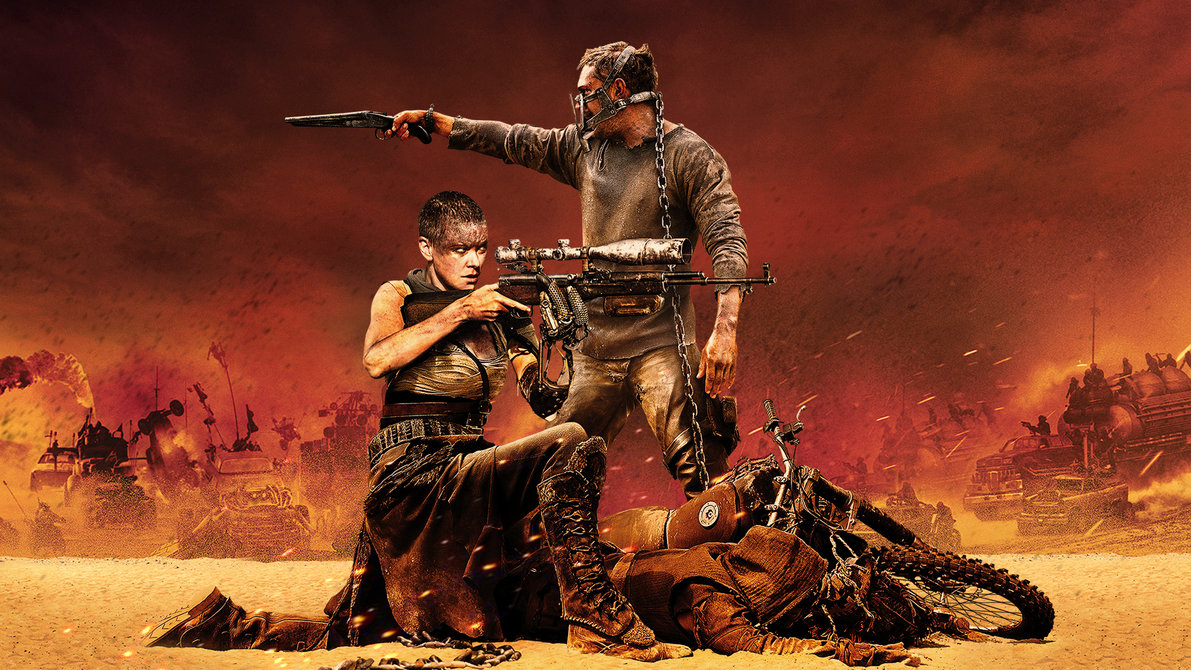I just finished rewatching Mad Max: Fury Road. I have to say, I can understand why the film earned the online ire of the so-called men’s rights activists (MRAs). It takes all the high-octane testosterone-drenched tropes of the typical action flick, ramps them up to 11 and, in so doing, exposes the madness that lies at the heart of the culture.
When this film came out, there was much internet chatter over how the title character was “barely” in it — which is silly, as Max is in nearly every scene. He doesn’t say much and he certainly doesn’t drive the plot (Furiosa is easily the protagonist here) but he’s still crucial to all that follows. Nonetheless, men with fragile senses of self-worth bemoaned how George Miller had made a film explicitly about empowering women, and thereby “stole” their favorite genre from them. While accusations of theft and corruption merely expose the privilege of the complainers, they have a point vis a vis the film’s message.
It’s no secret that Miller intended to draw a contrast between the rage-addled War Boys (and their manipulative messiah Immortan Joe), on the one hand, and the life-seeking and growth-oriented Furiosa and the Vuvalini, on the other. The message is more nuanced than the typical “Man = violent; Woman = peaceful” dichotomy found in most films. Furiosa is tough as nails and, importantly, just as determined, even ruthless, as her adversaries. The Vuvalini are deadly and unbending — enough to prompt surprise from the Wives, who express disappointment that the desert-scarred women aren’t “above all that“.
So if it’s rage and machismo and violence that “killed the world” — if the women are killers as deadly as the men — what sort of feminism is this and how can it be a contrast to masculinity run amok? In its motivation. Miller offers testimony that you don’t to be soft to be female, or to be good. Miller’s women aren’t weak-willed or passive; they aren’t willing to suffer in silence or wait for rescue. They’re willing to fight, in a world that demands it, but not for personal glory or personal release. They fight for each other and they fight for the future.
Perhaps the most subversive thing of Miller’s narrative, however, is that it is not just the women who do so. By the end, two of the male characters (Max and Nux) have come around to the same thinking. Nux gives up his life in a relatively standard heroic sacrifice, though one laced with moving contrast to his earlier bluster. Max — faced with the fact that his aim simply isn’t good enough to hit the Bullet Farmer with their last sniper bullet — yields the rifle to Furiosa without words and without hesitation, a gesture of unspoken, unremarked equality. Most strikingly, after spending the movie angrily obsessing over all that has been taken from him (his gun, his jacket, his gun), Max adopts the role of nurturer and gives to Furiosa his own life blood.
This is the threat so rightly, if dimly, perceived by ravening Mens’ Rights Activists. When Max accepts Furiosa, the Wives, and the Vuvalini — when in fact he joins their band in heart as well as body — he doesn’t surrender meekly and he doesn’t become impotent and weak. He rises higher. Trust, hope, and equality triumph over the outward-raging, inward-focused, self-consuming, diseased hypermasculinity of Immortan Joe’s cult. Recognizing the woman as more than objects doesn’t end up making him less as a man; it makes him more, too. That thought — that we can redefine masculine and feminine, that we can find equality and strength, that the battle of the sexes need not be eternal, even in a broken world — is poison to MRAs.
Post-apocalyptic literature is a favorite hunting ground for MRAs, because the collapse of civilization supposedly will strip away the veneer of civility used to hold men in their place and sap their strength. Things will be clear and sharp in the world after the world, and there will be (we are told) no time or resources to be wasted on delusions of equality. Post-apocalyptic worlds belong to the strong, and to survive, everyone needs to “know their place” — which, since men are stronger, means men on top rightfully. The harsh realities of survival will show everyone that this natural order is also morally right, and all will submit to it except the dangerous deluded, who will be ostracized, expelled, or killed.
But George Miller has stolen their genre from them. Here is a post-apocalyptic wasteland (heck, the post-apocalyptic wasteland, the ur-version of it), and success comes not from the strong subjugating the weak but from equals treating each other as equals. It’s not the lone hero saving the weak populace from depredation; it’s a team, a band, a family looking out for each other. Even in the shattered Wasteland, Miller tells us, there is a right path and it is not tread by angry impulsive violence but by cooperation, respect, and love. The adolescent fantasy of gore and sex is revealed to be nothing more than a sterile dead-end. The future belongs not to those who tear down but those who build up.
No wonder the MRAs are outraged and terrified of this movie.

Leave a Reply
You must be logged in to post a comment.